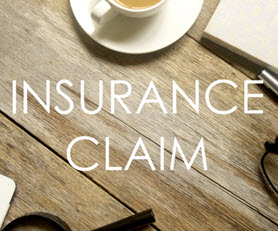Did you know that if you own a home in Florida, and no one is currently living on the premises, your property insurance policy may no longer provide coverage? Indeed, many standard homeowner’s insurance policies expressly exclude coverage for vacant or unoccupied homes. The primary reason for this is because the insurance companies believe that since no one is around to monitor the property, small issues could quickly turn into big losses.
Vacancy exclusions are a big deal in Florida. Many property owners in the state use their homes either part time or only for the summer months. It is important that these property owners are able to secure coverage that truly protects their interests. Here, our Broward County property insurance lawyers discuss some of the things you need to know about unoccupied properties and insurance.
Do You Know What Your Policy Covers?
Not all homeowner’s insurance policies are exactly alike. Property owners must know precisely what type of coverage their policy offers. Additionally, they must consider how that coverage fits their needs. The last thing you want is to sustain serious property, only to have your insurer claim that your losses are excluded. On the other hand, you also do not want to be paying for overlapping or unnecessary coverage. If your home or dwelling is left unoccupied for significant portions of the year, it is imperative that you review your policy to assess any potential coverage gaps.
What is ‘Vacant’ or ‘Unoccupied’ Home?
The terms ‘vacant’ and ‘unoccupied’ are generally defined by specific insurance policies. Most often, a vacant dwelling is one that lacks the necessary amenities, furnishings, and working utilities needed for an ordinary person live in a home. An unoccupied home usually refers to one that is uninhabited at the current moment. In simple terms, the property is vacant if there is no stuff in it, and unoccupied if there are no people in it. Many insurance policies exclude standard coverage for damage to property, once that dwelling has been left unoccupied for more than 30 days. Though, this time frame can vary depending on your specific policy.
Vacancy Exclusions Can Also Apply to Commercial Insurance Policies
After 30 or 60 days of vacancy, commercial landlords must be sure that they have the appropriate insurance coverage in place, because Florida commercial insurance policies also often contain vacancy exclusions. Landlords need to pay close attention to this issue, so they don’t end up with no coverage in a situation where their current property is in-between two commercial tenants. Of course, during this gap, the property could still get seriously damaged. All too many commercial landlords have turned to their insurer to collect, only to learn that coverage is excluded. Do not let this happen to you, be sure to review your insurance policy regularly.
Contact Our Sunrise, Florida Office Today
Was your property insurance claim wrongfully denied? To find out, please call our team today at (954) 990-5251. Our dedicated property insurance attorneys will comprehensively review your claim for free and help you assess your options. At Geyer Fuxa Tyler, we represent property owners throughout Broward County, including in Fort Lauderdale, Miramar and Deerfield Beach.





